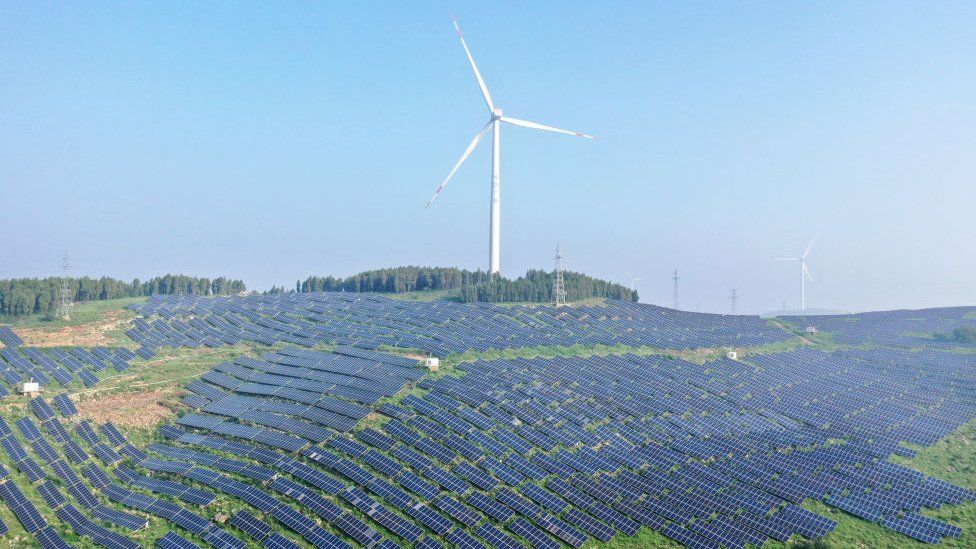-

-
-
Loading

Loading

The COP28 climate summit is discussing various concrete solutions to combat climate change and limit global warming. One of the most important actions is to reduce the burning of fossil fuels, which account for the majority of greenhouse gas emissions. Many governments, scientists, and campaigners are calling for a global agreement to phase out these polluting fuels. While global demand for coal, oil, and gas is expected to peak by 2030, this alone is not enough to achieve the climate goals outlined in the Paris Agreement. If all existing fossil fuel projects were fully utilized, the world would surpass the target of limiting warming to 1.5 degrees Celsius. Fortunately, there are alternative sources of renewable energy, such as solar and wind power. The cost of renewables has significantly decreased, leading to a boom in their adoption worldwide. By 2030, wind and solar energy could supply more than one-third of global electricity, compared to the current 12%. Solar energy, in particular, may become the dominant power source by 2050 due to cost and technological advancements. However, financing and availability in lower-income countries could pose challenges. To address the intermittency of renewable energy, other technologies like battery storage, nuclear power, and green hydrogen are needed. Many countries have committed to tripling global renewable power capacity by 2030, which is crucial to achieving the 1.5-degree Celsius target. Another significant contributor to greenhouse gas emissions is road transport. Electric vehicles (EVs) have the potential to significantly reduce these emissions. Over their lifetime, battery EVs can cut emissions by two-thirds compared to petrol vehicles. As electricity generation becomes cleaner, the emissions advantage of EVs will further increase. EV sales are rapidly increasing, and projections suggest that they could account for two-thirds of all new car sales globally by 2030. Methane emissions are another critical factor in global warming, accounting for around 30% of it. While it is less abundant in the atmosphere than carbon dioxide, it is much more potent as a warming gas. Cutting methane emissions from sources like agriculture, fossil fuel production, and waste could have a significant impact on slowing warming in the short term. Over 150 countries have committed to reducing methane emissions by 30% by 2030. Capturing carbon dioxide from its source or directly from the atmosphere may be necessary to limit warming to 1.5 degrees Celsius. The natural world currently absorbs over half of CO2 emissions, but human activities like deforestation and warming seas are diminishing its capacity. Restoring ecosystems is crucial, but additional methods like industrial capture and storage of CO2 are being explored. However, these technologies are still in the early stages and remain expensive. Ultimately, reducing fossil fuel consumption, transitioning to renewable energy, adopting electric vehicles, cutting methane emissions, and capturing carbon dioxide are all essential steps to address climate change.